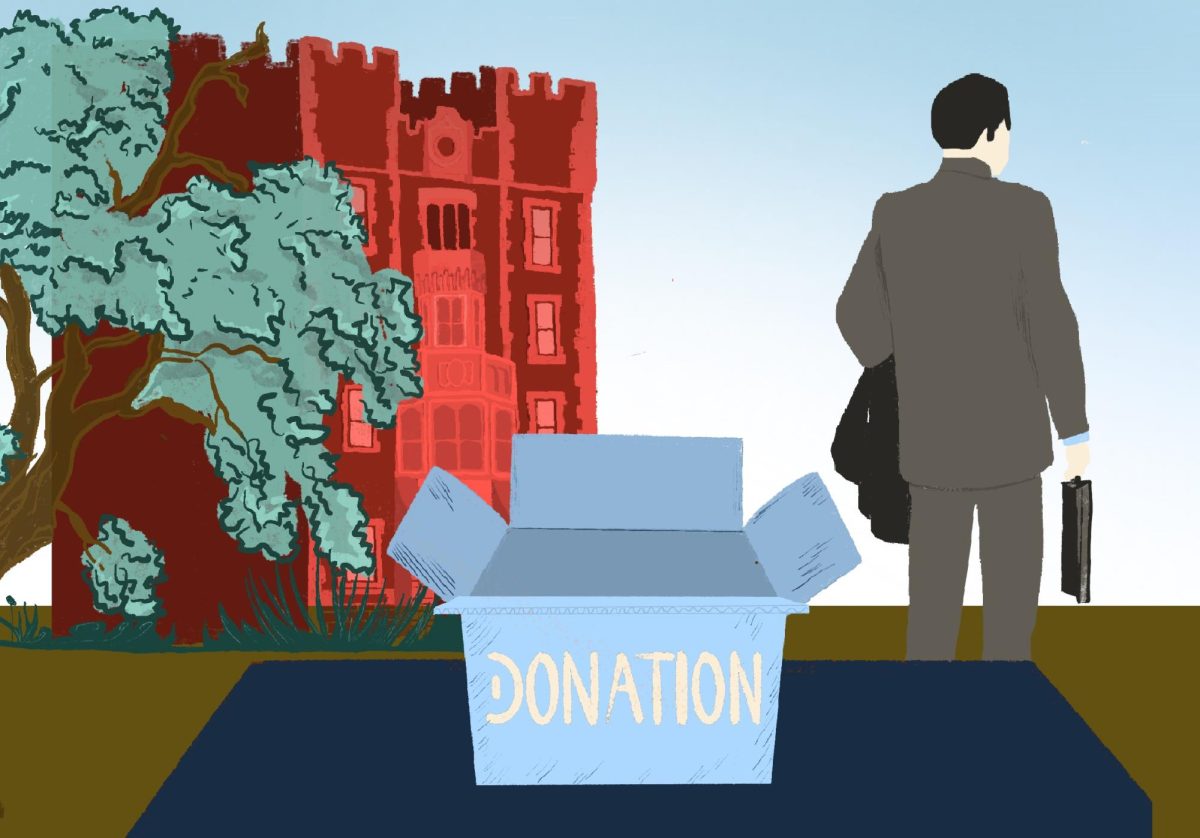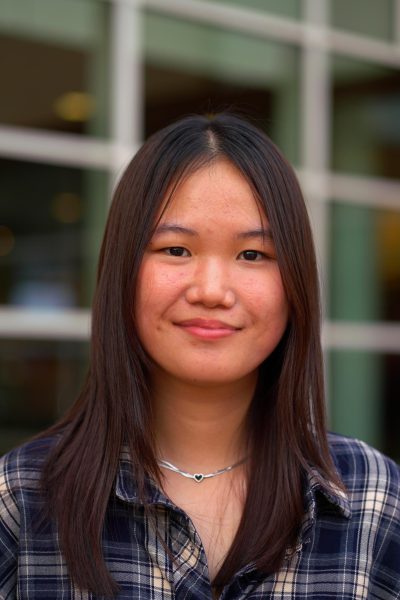Grinnell College has lower alumni philanthropy than many peer institutions, with only 23 percent of Grinnell alumni donating, according to Bernadine Douglas, vice president of development and alumni relations (DAR). Alums say various factors including financial strain and disappointment with the direction of the college contribute to their reluctance to donate.
Douglas said the reasons for Grinnell’s low philanthropy are complex, citing frequent changes in DAR’s leadership, disruption caused by the pandemic and alumni perception that Grinnell’s large endowment makes donation unnecessary.
Douglas said the Board of Trustees approved a comprehensive campaign to increase alumni donations on Sept. 28. The campaign will run through 2029 and have a public phase beginning in 2027. DAR’s priority, Douglas said, is to increase entry and mid-level donors. “While our larger donors have remained fairly consistent, where we see challenges is on that broad level of participation among our alumni, our students and our parents,” she said.
“I think deep down, and it’s hard to get people to admit this on the record, but deep down, I think 70, 80 percent of people will say that, does Grinnell College really need the money?” Aru Singh `09 said. Singh said he has donated to Grinnell five or six times since graduation but plans to decrease his donations as his knowledge of elite American universities’ exclusivity has increased.
Emmy Potter `24 said although she loves Grinnell and enjoyed her time at the college, she has never donated to the college. The primary reason she will not donate to the school, she said, is that “There’s been a general focus away from student organizations, which I think was really what made Grinnell, Grinnell […] So that kind of decentralizing of student organizations and student voices from those spending decisions is a major factor as to why I’m not donating and don’t want to donate.”
Potter said finances have also prevented her from donating since graduation. “I’m living off of around $55,000 a year in one of the most expensive cities in the U.S., paying for my car, paying for rent, paying for clothes and going to events,” she said. “I’m in grad school as well as working full time. On top of that, paying for not only tuition, but books. So, I really don’t have a lot of capacity to donate.”
“The amount is not what is important,” Douglas, who thinks there is a misconception about who can be a donor, said. “It doesn’t even matter if you never move off the $25 mark. It is about saying if your experience in its totality is important to you, and sustaining that for the Grinnellians who come after you is important, then even a small investment, when we put all of those investments together, makes a huge difference.”
Potter said such messaging feels out of touch with the experience of young alums, calling some donation requests “predatory.”
“There’s one that [my partner and I] always joke about that was like, ‘Starbucks coffee $5, Trader Joe’s dark chocolate peanut butter cups $5, you could use that $10 to pay for a student’s tuition,’” Potter said. “I don’t think people realize the reality of being early in your career and what finances look like. And then we have the Grinnell that we wanted to be attending being stripped away from us slowly … I think the common sentiment among my peers, from whom I talked to, is that they will not be donating as long as Grinnell continues to go down this path.”
The email to which Potter is referring was sent on June 12, 2023 by class fund director Camila Hassler `22 and read: “Dark chocolate peanut butter cups at Trader Joe’s: $4.29 Venti cappuccino from Starbucks: $5.25 Paying it forward to Grinnell students: $10.”
Potter also expressed concern about the management of donations, saying, “I am fully aware of what my donation to say, CLS, or the Grinnell Science Project, or the Disability Cultural Center, any of the other things that I was engaged with on campus … I’m fully aware of how that would impact students. I think the thing is that the general sentiment among alumni is that we worry those funds will be mismanaged if we do give them.”
Melinda Lopes `85 said that she and her husband, Kevin Rhodes `85, are regular donors to the college and donated a larger amount to create the Lopes Rhodes Dirty Teaching Lab in the HSSC. “They had this thing that spoke to both of us, because we were both anthropology majors, and it connected to us, to an experience at the school that was meaningful for us,” Lopes said.
She said she also worries about misinformation spreading among alums. “It’s almost like people are holding Grinnell to a standard that I think would be impossible for a school — to do absolutely everything right.”
When considering how to reach students with specific concerns about Grinnell’s administrative policies, Douglas said that “those are not policies that originate out of DAR. Where we have to be really careful, and where my role is being a good colleague, but also a good liaison with alums — it’s walking a line of I want to be able to hear their concerns and understand what is within the realm of my control and what is out of my control. And I think the best thing that DAR can do is encourage transparency on both sides.”
Douglas said that DAR is pursuing multiple strategies and projects to increase alumni engagement and philanthropy, including a Parent and Family Leadership council to involve students’ families, the “grinfluencers,” a social media program that works to gather student and alumni stories and share them online, the newsletter “The Middle of Everywhere” and Scarlet and Give Back Day.
“The reason I am critical is because I expect Grinnell to be above those standards. I have more expectations for a place I love,” Singh said.




















































